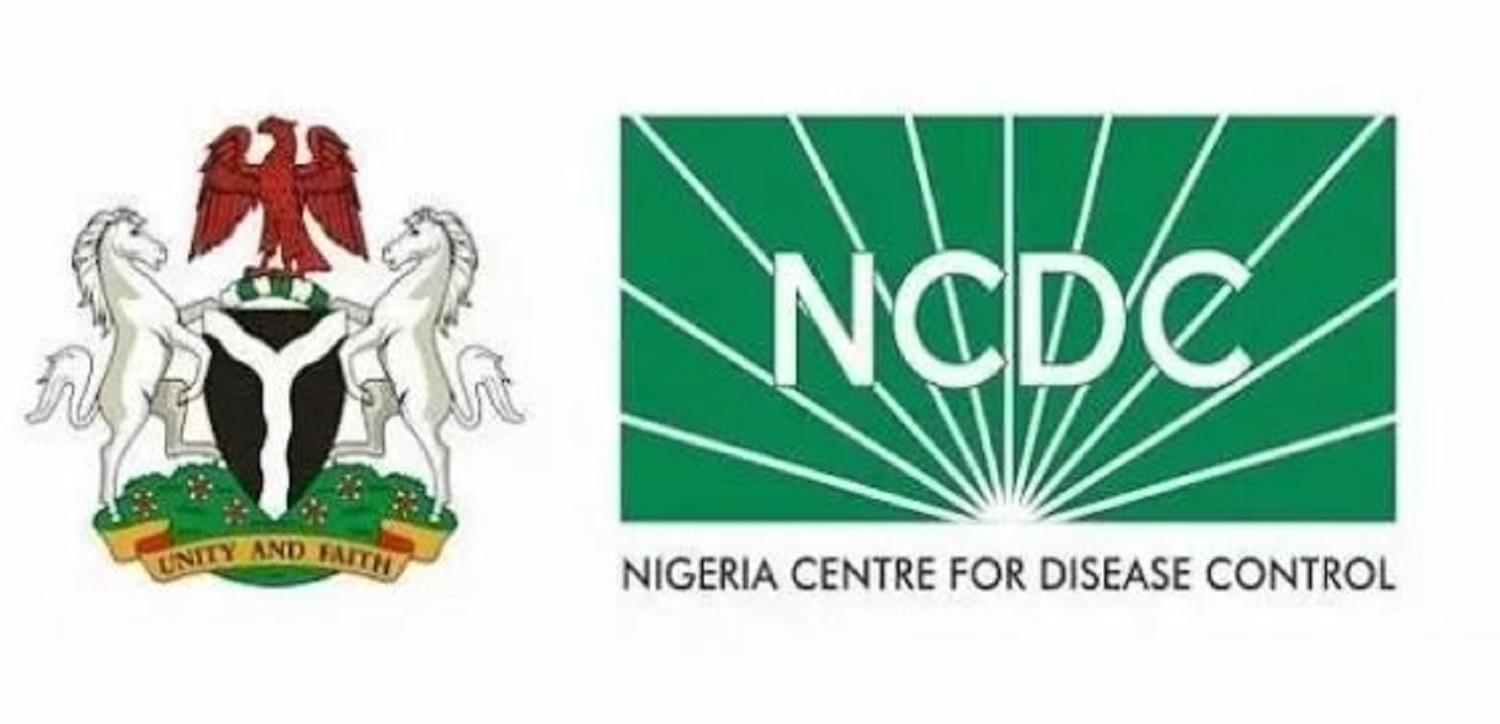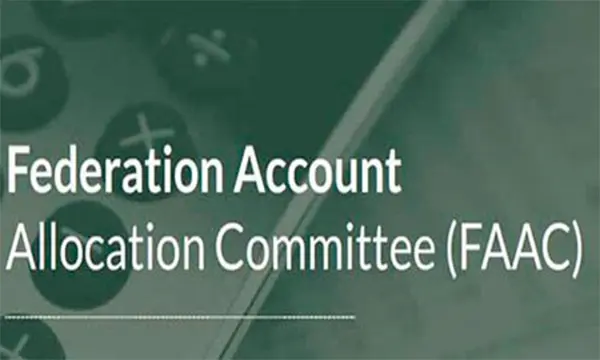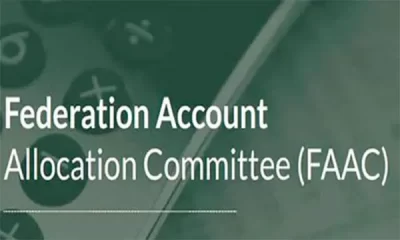NEWS
Lassa Fever Cases Decline in Nigeria, Fatality Rate Remains High – NCDC

The Nigeria Centre for Disease Control and Prevention (NCDC) has reported a decline in new confirmed Lassa fever cases in its Epidemiological Week 9 2025 report.
The NCDC via its official website on Sunday, said that the fatality rate remained alarmingly high at 18.
7 per cent, with 100 deaths recorded so far in 2025.According to the Lassa Fever Situation Report released by the agency, 29 new cases were confirmed across nine states, a drop from 54 cases recorded in the previous week (Week 8).
It said that the affected states included Ondo, Bauchi, Edo, Taraba, Ebonyi, Plateau, Cross River, Nasarawa, and Enugu.
The NCDC highlighted that 72 per cent of all confirmed cases were reported from just three states—Ondo 31 per cent, Bauchi 24 per cent, and Edo 17 per cent.
It said that these states continued to bear the brunt of the outbreak, raising concerns over the effectiveness of ongoing containment efforts.
Furthermore, it noted that one new healthcare worker was infected in Week 9, bringing the total number of affected health workers in 2025 to 17.
“This underscores the urgent need for better protective measures, adequate supply of personal protective equipment (PPEs), and enhanced infection prevention protocols in hospitals,” it said.
The NCDC outlined several challenges impacting the response to the outbreak, including: “Late presentation of cases, leading to high fatality rates”.
“Poor health-seeking behaviour, attributed to the high cost of Lassa fever treatment and management.
“Poor environmental sanitation conditions in high-burden communities and low awareness about Lassa fever symptoms and preventive measures”.
In response to the outbreak, it said that the National Rapid Response Team (NRRT) had been deployed to Gombe, Nasarawa, and Benue states to provide technical support.
Additionally, the NCDC said it had intensified risk communication efforts and conducted training for healthcare workers in Bauchi, Ebonyi, and Benue states.
The agency said it was also collaborating with international partners such as WHO, MSF Geneva, and Georgetown Global Health Nigeria to improve case management and enhance surveillance.
Comparative data from the NCDC showed that while the number of confirmed cases in 2025 (535 cases as of Week 9) is lower than in 2024 (682 cases during the same period), the fatality rate remains nearly the same (18.7% vs. 18.8%).
“The NCDC continues to advise Nigerians to: “avoid contact with rodents and their droppings, store food properly to prevent contamination, and seek medical attention immediately if they experience symptoms such as fever, headache, sore throat, and unexplained bleeding,” it reported.
Meanwhile, Public Health experts said this called for more proactive measures to address gaps in early detection, treatment affordability, and public awareness to reduce mortality rates in future outbreaks.
They urged state governments, donor agencies, and community leaders to intensify awareness campaigns and improve healthcare infrastructure in Lassa fever hotspots.
As Nigeria battles this recurrent public health challenge, experts emphasised the need for long-term investments in disease surveillance, public health education, and improved access to treatment to curb future outbreaks.
Report says that Lassa fever is a viral hemorrhagic disease caused by the Lassa virus, primarily spread through contact with food or household items contaminated by the urine, faeces, or saliva of infected rodents.
Human-to-human transmission can also occur, particularly in healthcare settings, with inadequate infection prevention and control (IPC) measures.
Nigeria records Lassa fever cases year-round, with peak transmission occurring between October and May.
The high burden of the disease is linked to widespread rodent infestations, poor sanitation, and a lack of awareness in many communities.
Efforts to combat Lassa fever in the country include: surveillance and early detection, case management, and public health awareness campaigns.
In spite of these efforts, Lassa fever remains a significant public health challenge, with high mortality rates and the potential for international spread, as seen in the recent report. (NAN)
NEWS
UCare, ECOWAS Extend Lifeline to Displaced Families in Abagana Camp

By David Torough, Abuja
UCare Nigeria, with support from the ECOWAS Peace Fund, on Friday expanded its humanitarian pilot programme to the Abagana Internally Displaced Persons (IDP) camp in Makurdi Local Government Area of Benue State.
The initiative, which began at Ichwa camp, is designed to provide both health and non-health support across three camps.
According to UCare’s Benue State Team Lead, Mr.
Terna Nyityo, the intervention targets 1,000 individuals in each camp with medical services, dignity kits for adolescents, delivery kits for pregnant women, solar-powered boreholes, safe drinking water, and toilets.He added that members of surrounding host communities, who are also burdened by displacement, are included in the programme.
Nyityo noted that although the camp’s population had reduced as some displaced persons attempted to return to farming, renewed attacks were driving many back into the facility. “We are recording more people in the camp again,” he explained.
Commissioning the newly installed borehole and toilets on behalf of the partners, Abagana camp manager and BSEMA representative, Ms. Shipinen Unande, described the intervention as “a massive development” that would ease water supply challenges and improve sanitation.
However, she expressed concerns over deteriorating shelters, food shortages, lack of farmland, and the absence of essential drugs at the camp’s pharmacy.
According to her, some families are forced to sleep under staircases while others dig up tree roots for firewood.
Unande further appealed for scholarships and skill-acquisition programmes to empower young people in the camp, saying: “We have vibrant youths who can work if given the opportunity.”
Also speaking, the camp chairman, Mr. Azende Festus, lamented worsening living conditions caused by insect infestations affecting many households.
Beyond infrastructure, UCare also distributed mosquito nets, dignity kits, and mama kits, and conducted medical outreach for children, pregnant women, and breastfeeding mothers.
The ECOWAS-supported initiative aims to reach 3,000 displaced persons across three camps in Benue State by the end of August, providing health care, safe water and sanitation facilities, nutritional supplements for children, and other essential humanitarian aid.
NEWS
Julius Berger Joins Forces With FRIN, NCF to Plant 20,000 Trees at FCT Army Cantonment

By Mike Odiakose, Abuja
In a landmark move towards environmental sustainability, engineering construction company, Julius Berger Nigeria Plc, in partnership with the Forest Research Institute of Nigeria (FRIN) and the Nigerian Conservation Foundation (NCF) has successfully carried out a major tree-planting exercise at the Muhammadu Buhari Cantonment, Abuja.
The initiative, which saw the planting of over 20,000 indigenous tree seedlings, marked a significant contribution to Nigeria’s fight against deforestation, climate change, and biodiversity loss.
It also reaffirmed Julius Berger’s broader commitment to responsible environmental stewardship and sustainable development.
The effort, which was a collaborative blend of expertise and shared vision, saw the FRIN leading the technical aspects of species selection and ecological suitability while NCF brought in decades of conservation experience and community engagement, with Julius Berger providing the funding, and coordination support.
Speaking at the event, Dean of the Faculty, General Research at the Nigerian Army Heritage and Future Centre, Major General J.Y. Maina, representing the Chief of Army Staff, Lt. Gen. O.O. Oluyede underscored the strategic importance of environmental protection in national security
He said, “today’s exercise is a practical demonstration of our shared recognition that environmental protection is inseparable from national security. Climate change, desertification, and environmental degradation pose long-term threats to our country’s stability. Tree planting is not just an ecological necessity; it is a strategic investment in our collective future.”
Even as he praised Julius Berger’s leadership and commitment, calling the collaboration “a shining example of how the military, government institutions, and the private sector can work together for sustainable development.”
The Zonal Coordinator, Nigeria Conservation Foundation, Garba Boyi, who ably represented the Director-General, Dr. Joseph Onoja of the NCF said the Foundation is a non-governmental organization, adding that the organisation’s focus and mandate is actually in the area of biodiversity conservation and sustainable development in Nigeria.
“For us to achieve that, we have developed or come up with an initiative, which we call it Green Recovery Nigeria. This is an initiative that is meant actually to salvage the situation in which our vegetation happens to be. Because going by the statistics, we have less than 10% of our vegetation cover left.
“So we as an organization, feel the need to contribute our quota to complement the government activity by planting trees.”
In commending Julius Berger’s effort in the tree planting exercise, he said, “I want to use this opportunity to thank our sponsors, Julius Berger for being a huge part of this initiative. This is really a big feat and we are sincerely grateful to the company for giving us the funds and really excited that Julius Berger gets to be on this journey with us.”
The Chief Executive of a key stakeholder in the exercise, Ceed Africa Limited, Dr. Okechukwu Ogbonna, thanked Julius Berger for the funding support for the exercise even as the Director, Forestry Research Institute of Nigeria, Prof. Zacharia Buba Yadura appreciated the leading construction company for its collaborative effort, saying, “we didn’t have sponsors or partners, and Julius Berger decided through the NCF to be a partner of this Initiative. We are grateful to Julius Berger for joining us on this vital journey.”
The event brought together stakeholders from the public, private, and military sectors, among which were: the Minister of Environment, Mallam Balarbe Abbas Lawal ably represented by the Permanent Secretary, Minister of Environment, Mahmud Adam Kambari, the representative, Chief of Army Staff, Maj. JY Maina, Dean Faculty of Research , NAHFC, the Director of Coordination and Linkages, NAFHC, Major General O. Nwachukwu, The Corp Commander, Nigerian Army Women Corps, Brig. Gen. MI Amatso, the Director General, FRIN; Prof. Zacharia Buba Yadura, Zonal Coordinator, NCF, Garba Boyi, and the Liaison Officer, Forestry Research Institute of Nigeria, Dr. Christopher Nwadike.
The Julius Berger delegation to the Tree Plantiong Ceremony include Emmanuel Isibor, Daniel Isichei, and Uzoma Olivia.
End
NEWS
FG, States, LGCs Share N2.001trn July, 2025 Revenue

By Tony Obiechina Abuja
A total sum of N2.001 trillion, being July 2025 Federation Account Revenue, has been shared to the Federal Government, States and the Local Government Councils. The revenue was shared at the August 2025 Federation Account Allocation Committee (FAAC) meeting held in Abuja.
The N2.001 trillion total distributable revenue comprised distributable statutory revenue of N1,282. 872 trillion, distributable Value Added Tax (VAT) revenue of N640. 610 billion, Electronic Money Transfer Levy (EMTL) revenue of N37.601 billion, Exchange Difference N39.745 billion. A communiqué issued by the Federation Account Allocation Committee (FAAC) indicated that total gross revenue of N3,836.980 trillion was available in the month of July 2025. In a statement by Bawa Mokwa, Director of Press and Public relations of the OAGF, on Friday, total deduction for cost of collection was N152,681 billion while total transfers, interventions, refunds and savings was N1,683.471 trillion. According to the communiqué, gross statutory revenue of N3,070.127 trillion was received for the month of July 2025. This was lower than the sum of N3,485.235 trillion received in the month of June 2025 by N415.108 billion. Gross revenue of N687.940 billion was available from the Value Added Tax (VAT) in July 2025. This was higher than the N678.165 billion available in the month of June 2025 by N9.775 billion. The communiqué stated that from the N2,000.828 trillion total distributable revenue, the Federal Government received total sum of N735.081 billion and the State Governments received total sum of N660.349 billion. The Local government Council received N485.039 billion, while the sum of N120.359 billion (13% of mineral revenue) was shared to the benefiting State as derivation revenue. On the N1,282.872 trillion distributable statutory revenue, the communiqué stated that the Federal Government received N613.805 billion and the State Governments received N311.330 billion. The Local Government Councils received N240.023 billion and the sum of N117.714 billion (13% of mineral revenue) was shared to the benefiting States as derivation revenue. From the N640.610 billion distributable Value Added Tax (VAT) revenue, the Federal Government received N96.092 billion, the State Governments received N320.305 billion and the Local Government Councils received N224.214 billion. A total sum of N5.640 billion was received by the Federal Government from the N37.601 billion, The State Governments received N18.801 billion and the Local Government Councils received N13.160 billion.From the N39.745 billion Exchange Difference, the communiqué stated that the Federal Government received N19.544 billion and the State Governments received N9.913 billion. The Local Government Councils received N7.643 billion, while the sum of N2.643 billion (13% of mineral revenue) was shared to the benefiting States as derivation revenue. In July 2025, Petroleum Profit Tax (PPT), Oil and Gas Royalty, Electronic Money Transfer Levy (EMTL) and Excise Duty increased significantly while Value Added Tax (VAT)and import Duty increased marginally. Companies Income Tax (CIT) and CET Levies recorded decreases.



















